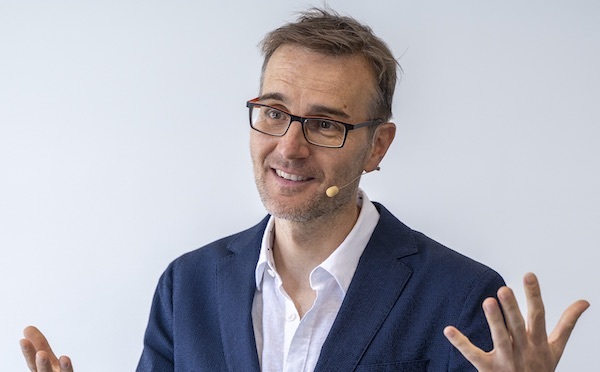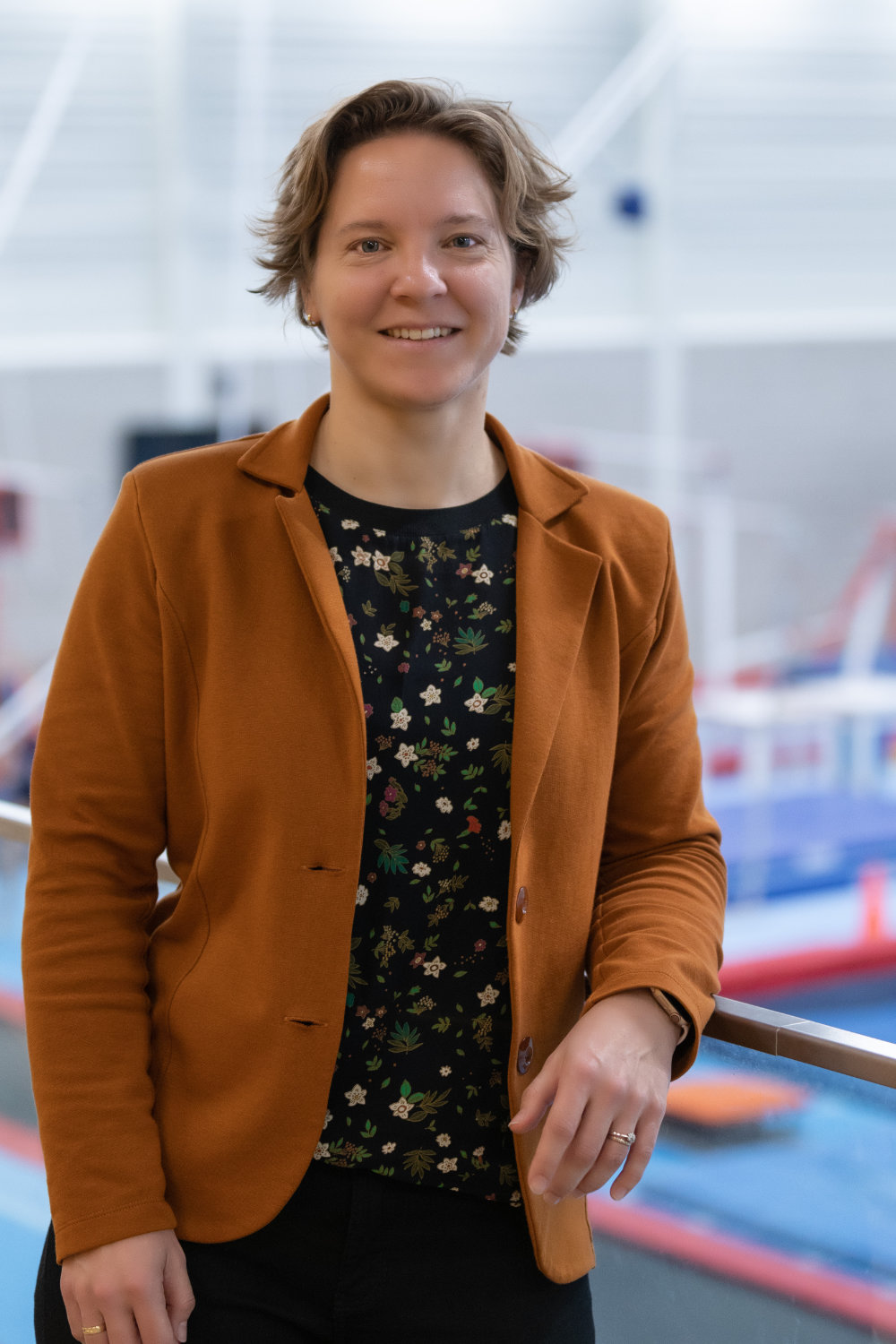Keynotes

Prof. Florian "Floyd" Mueller
Director, Exertion Games Lab
Monash University, Melbourne, Australia
SportsHCI: Experiencing the Body as Play through Human-Computer Integration
SportsHCI is still finding its footing, often focusing on instrumental aspects such as athletic performance. However, sport is so much more. I argue to also consider experiential aspects, such as personal growth. To facilitate that, I propose to design for experiencing the body as play, guided by virtues and enabled by a shift from human-computer interaction to human-computer integration. I illustrate this with recent work, including designing for humility in bouldering, reverie in adventure, and the sublime in surfing.
Biography
Florian 'Floyd' Mueller is a Professor of Future Interfaces at Monash University in Melbourne, Australia, where he directs the award-winning Exertion Games Lab. His aim is to help people figure out who they are and who they want to become; he believes that interactive technology can support this journey. Previously, he was at RMIT, Stanford, University of Melbourne, Microsoft Research, MIT Media Lab, Fuji-Xerox Palo Alto Labs, Xerox Parc, and the industrial research organization CSIRO. Floyd’s games were played by over 20,000 players across 3 continents and were featured on the BBC, ABC, Discovery Science Channel and Wired magazine. His contributions have been recognized by others, for example, he is an inaugural honouree of the Australian Design Centre’s Design Honours. His work has been shortlisted for the European Innovation Games Award (next to Nintendo's WiiFit), has received a Nokia Mindtrek Ubimedia Award, and was commissioned by Wired's Nextfest. He has written over 400 publications, mostly in the premier publication outlets in the field of Human-Computer Interaction (HCI) such as CHI, CHI PLAY, DIS, TEI, Ubicomp (IMWUT), UIST as well as ToCHI and IJHCS. He has been cited over 10000 times and is in the Top 100 Most Productive HCI researcher list. His work has received 10 Honourable Mentions (representing the top 5% of conference papers), 1 Best Paper at CHI PLAY (Top 1%), and 2 Best Papers at CHI (Top 1%). He is co-Editor in Chief for Now Publisher’s Foundations and Trends in HCI. Floyd co-established the first CHI Sub-Committee on “Games and Play” as well as the CHI PLAY conference series. He was selected to be General Co-Chair for CHI PLAY’18 and then CHI’20 and CHI’24, spearheading the highest-ranked publication outlet in HCI. He is a member of the ACM CHI Academy, an “honorary group recognizing leaders who have made substantial contributions to HCI”.

Froukje Smits
Research Group Sustainable Communities
HU University of Applied Sciences Utrecht, Netherlands
Designing for a Culture of Care: A Human-Centered Approach for Safe Sport
Elite sport is often framed around performance optimization, yet its social safety remains fragile. Persistent cases of abuse and unsafe practices show that safeguarding cannot rely solely on compliance measures. What is needed is systemic cultural transformation—a shift toward a culture of care, where respect, trust, and equality underpin team dynamics.
This keynote explores why such transformation is complex by drawing on sociological concepts—power relations, normativity, and institutional logics—and connecting these to relevant theoretical frameworks. These perspectives reveal why cultural change cannot be reduced to individual behavior but requires interventions that address structural and relational dynamics simultaneously.
Building on these insights, the keynote introduces the ROCIES framework (Rose Of Culture In E/Elite Sport), which visualizes team cultures across three zones: Red (abusive/toxic), Orange (concern/risk), and Green (care/safeguarding). Moving toward green demands more than protocols; it calls for participatory processes that make cultural dynamics visible and actionable.
To operationalize this, ROCIES developed MissionMapping, a human-centered design method for navigating complex cultural change. Through five steps—collecting building blocks, creating islands, building the landscape, navigating roles and interventions, and capturing insights—MissionMapping engages athletes, coaches, and staff in co-creating a “mission landscape.” Workshops using this method foster ownership, reveal invisible structures, and enable collaborative action toward safer team cultures.
By making missions tangible and creating shared language, MissionMapping demonstrates how participatory design, visualization, and interaction can drive cultural innovation in sport. This approach aligns with the SportsHCI vision: leveraging design and interaction not only to enhance performance but to create environments where athletes thrive socially and psychologically. Safeguarding in elite sport is not a static policy but an ongoing cultural journey—one that requires active participation across micro-, meso-, and macro levels.
Biography
Froukje Smits, PhD is a senior researcher at HU University of Applied Sciences Utrecht. She holds degrees in Physical Education and Youth, Education and Society (cum laude), and has a background in teaching, policy, and applied sport research. Her work focuses on the social impact of sport, with award-winning studies on exclusion, abuse, and athlete welfare in youth sport. She brings extensive experience in interdisciplinary, practice-based research and is recognized as an expert in fostering safe sport environments and critically engaging with elite sport culture.
